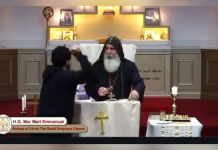On 30 June 2020, a new national security law came into effect in Hong Kong, shortly after being passed by the National People’s Congress Standing Committee, China’s highest legislative body. The law prohibits secession, subversion, terrorism and ‘collusion with a foreign country or with external elements to endanger national security’, and was met with fierce opposition from activists, residents, legal experts and democratic governments around the world, who believe the law is a serious threat to human rights and fundamental freedoms.
Concerns stem not only from these broad prohibitions but also articles which state that the new security law overrides local Hong Kong laws if there are inconsistencies (Article 62). Significantly, Article 65 states that power to interpret the law lies with the National People’s Congress Standing Committee, not local Hong Kong courts. Additionally, Article 48 provides for the establishment of a national security office by the central government to assist with processing national security cases. The law gives the central Chinese government new levels of power over Hong Kong in the area of ‘national security’.
UK Prime Minister Boris Johnson has denounced the imposition of the security law as a ‘clear and serious’ violation of the 1984 Sino-British Joint Declaration. In addition, the UK was among 27 countries which supported a joint statement stating that: ‘Making such a law without the direct participation of Hong Kong’s people, legislature or judiciary of Hong Kong undermines “One Country, Two Systems”.’
A statement signed by 50 United Nations (UN) Independent Experts, issued on 26 June, stated that the law, which at that point had not been passed, would ‘violate China’s international legal obligations and impose severe restrictions on civil and political rights in the autonomous region…undermine the right to a fair trial and presage a sharp rise in arbitrary detention and prosecution of peaceful human rights defenders at the behest of Chinese authorities.’1 The experts urged the government to withdraw the draft national security law for Hong Kong.
The United States Commission on International Religious Freedom (USCIRF) has also expressed concern about the effect that the law will have on freedom of religion or belief (FoRB) in Hong Kong. In a statement USCIRF Commissioner Gary Bauer said: ‘This new national security legislation would potentially expand the Chinese Communist Party’s war on faith in the mainland to hundreds of thousands of believers in Hong Kong.’2 The statement also cites fears from religious leaders in the city, and notes that the head of China’s Hong Kong office, Xia Baolong, previously oversaw a crackdown against churches in Zhejiang Province.










